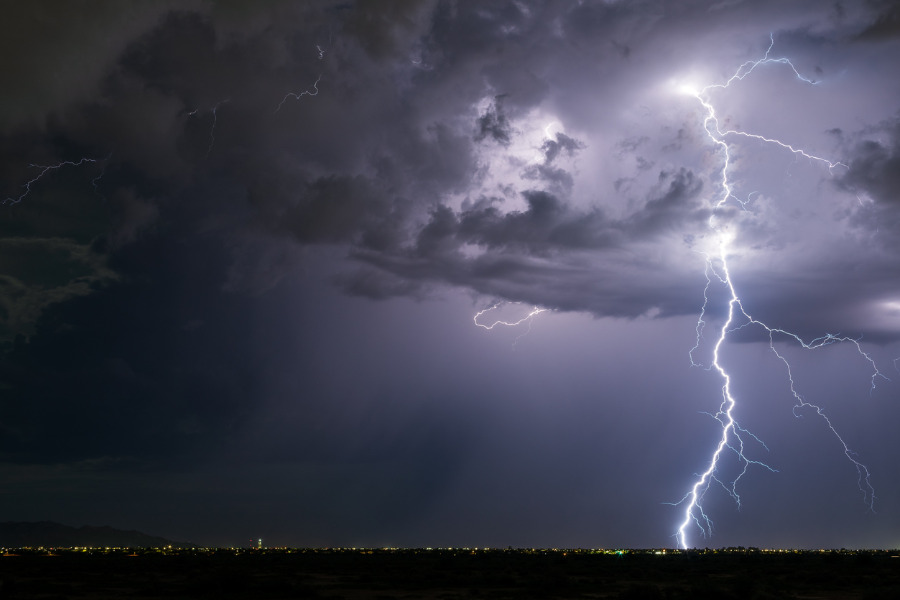

Bad weather and war are threatening to keep the world’s wheat supplies under strain and reviving the specter of rising food costs.
From soggy fields in western Europe to parched soil in Australia and Moscow’s invasion holding back Ukrainian supplies, farmers face setbacks. That means global stockpiles will remain the smallest in almost a decade, according to analysts surveyed ahead of the US government’s first forecast for next season.
Bumper Black Sea harvests have long kept a lid on prices and wheat is trading at half its record set in 2022, but supply concerns are mounting again. Futures have rebounded to hit the highest since August and funds are trimming bearish bets that they’ve held for almost two years.
That’s a worrying sign for consumers who’ve finally found relief from rising food prices. Any prolonged rally could increase costs for bread and pasta and rekindle inflationary pressure on central banks — with other major crops like cocoa and coffee also climbing this year.
“Demand has increased, stocks remain tight globally and new crop issues are escalating,” said James Bolesworth, managing director at CRM AgriCommodities.
With Northern Hemisphere harvests approaching, the next few weeks remain critical for crop development, so there’s still time for things to improve — or worsen. Here’s a roundup of conditions in major growers:
Top exporter Russia risks missing out on crucial moisture, with weeks of heat and not enough rain in the country’s south prompting analysts to cut harvest estimates. Half Russia’s winter wheat will remain too dry over the next two weeks, Commodity Weather Group said Wednesday.
Russia should still reap a big crop, but its dominance means that any jolts to local prices feed through to other markets — and the country’s wheat has been getting more expensive lately.
Dryness has also hampered swaths of Ukraine’s wheat in recent weeks, but war is fueling other problems. Attacks on agriculture infrastructure threaten exports and the workforce has been depleted as men serve in the army.
Grain output in the upcoming season could drop 6% from a year earlier with farmers expected to divert grain acres to more profitable crops like rapeseed.
A soggy spring hurt crop development across northwest Europe. Winter-crop quality — which determines whether supplies are used for food or for animal feed — could also suffer. In France, the share of wheat and barley in top conditions lags far behind last year’s level. Rain has also slowed spring plantings in the UK, Germany and France.
“We are obviously concerned by the issue of unplanted areas given it is linked to the weather conditions,” Benoit Pietrement, chair of the grains council at crops office FranceAgriMer, said last month.
A dry, hot summer in parts of Australia has dried up soil just as farmers plant the crop. While recent rain provided a bit of relief in some areas of the key state of Western Australia, growers remain cautious.
Crops risk “frying” in the state if rain stops after germination, Dennis Voznesenski, associate director of sustainable and agricultural economics at Commonwealth Bank of Australia, said this week. Wheat’s rally both locally and globally has been faster than expected, he said.
Drought has gripped a bigger share of US winter-wheat fields since early April, and remains a concern for spring plantings, even as recent forecasts indicate showers. Still, more US winter wheat is in the top conditions than usual for this time of year and spring plantings remain ahead of the five-year average pace.
Crop concerns are showing up in prices, with money managers now the least bearish since July. But things could change before the first Northern Hemisphere harvests start in roughly four weeks.
There is “a lot of weather to trade yet, the crop is far from being complete and if rains show up they will have value,” said Matt Ammermann, a commodity risk manager at StoneX. “It now remains a wait-and-see type of game.”

Rajesh Markan earlier this year pleaded guilty to one count of criminal fraud related to his sale of fake investments to 10 clients totaling $2.9 million.

From building trust to steering through emotions and responding to client challenges, new advisors need human skills to shape the future of the advice industry.

"The outcome is correct, but it's disappointing that FINRA had ample opportunity to investigate the merits of clients' allegations in these claims, including the testimony in the three investor arbitrations with hearings," Jeff Erez, a plaintiff's attorney representing a large portion of the Stifel clients, said.

Chair also praised the passage of stablecoin legislation this week.

Maridea Wealth Management's deal in Chicago, Illinois is its first after securing a strategic investment in April.
Orion's Tom Wilson on delivering coordinated, high-touch service in a world where returns alone no longer set you apart.
Barely a decade old, registered index-linked annuities have quickly surged in popularity, thanks to their unique blend of protection and growth potential—an appealing option for investors looking to chart a steadier course through today's choppy market waters, says Myles Lambert, Brighthouse Financial.
